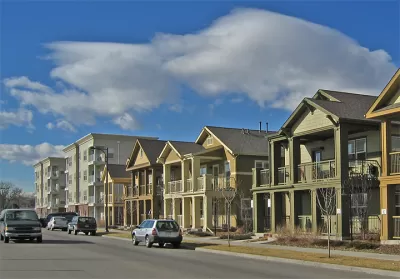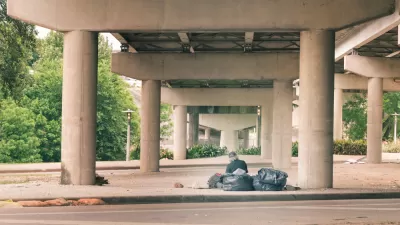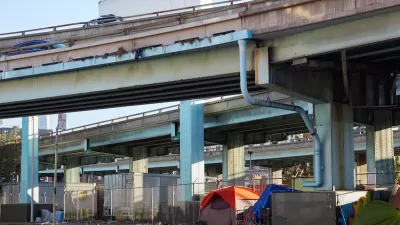Results from five years of Denver's Supportive Housing Social Impact Bond Initiative show that people and communities benefit from a 'Housing First' approach to homelessness.

People experiencing homelessness are often "trapped in a homelessness-jail cycle—rotating in and out of jail, detoxification centers, and emergency health care. This cycle doesn’t help people access the assistance they need to find stability, and it comes at a major cost to taxpayers." The 'Housing First' concept seeks to change that–and seems to be succeeding, as research from The Urban Institute, with partners from The Evaluation Center at the University of Colorado Denver, shows. "Results from the five-year Denver Supportive Housing Social Impact Bond Initiative (Denver SIB) show how both people and public budgets benefit when communities take this proactive approach."
"Housing First programs don’t require participants to meet any preconditions, and they are built on the idea that secure, affordable, and permanent housing must be available before people can work on other challenges, such as mental health or substance use disorders." The rigorous study "used a randomized controlled trial, the gold standard for determining a program’s impact, that included 724 people: 363 people were in the treatment group (referred to the supportive housing program) and 361 people were in the control group (receiving services as usual in the community)." Its results show "that supportive housing, through a Housing First approach, not only ends chronic homelessness and helps people find stability, but also reduces jail days and lowers the public costs of the homelessness-jail cycle."
FULL STORY: Housing First Breaks the Homelessness-Jail Cycle

Manufactured Crisis: Losing the Nation’s Largest Source of Unsubsidized Affordable Housing
Manufactured housing communities have long been an affordable housing option for millions of people living in the U.S., but that affordability is disappearing rapidly. How did we get here?

Americans May Be Stuck — But Why?
Americans are moving a lot less than they once did, and that is a problem. While Yoni Applebaum, in his highly-publicized article Stuck, gets the reasons badly wrong, it's still important to ask: why are we moving so much less than before?

Using Old Oil and Gas Wells for Green Energy Storage
Penn State researchers have found that repurposing abandoned oil and gas wells for geothermal-assisted compressed-air energy storage can boost efficiency, reduce environmental risks, and support clean energy and job transitions.

Proposed Bill Would Direct Funds to Road Safety
The Sarah Debbink Langenkamp Active Transportation Safety Act was spurred by the death of a U.S. diplomat who was killed on her bicycle.

Museum of Public Housing Opens in Chicago
The museum highlights the history of public housing in the United States using displays intimately woven with family artifacts.

HUD Ordered to Release Grant Funds After Anti-DEI Clawback
A federal judge ruled in favor of fair housing groups after the Trump administration tried to rescind housing grants.
Urban Design for Planners 1: Software Tools
This six-course series explores essential urban design concepts using open source software and equips planners with the tools they need to participate fully in the urban design process.
Planning for Universal Design
Learn the tools for implementing Universal Design in planning regulations.
Heyer Gruel & Associates PA
City of Moreno Valley
Institute for Housing and Urban Development Studies (IHS)
City of Grandview
Harvard GSD Executive Education
Salt Lake City
NYU Wagner Graduate School of Public Service
City of Cambridge, Maryland





























